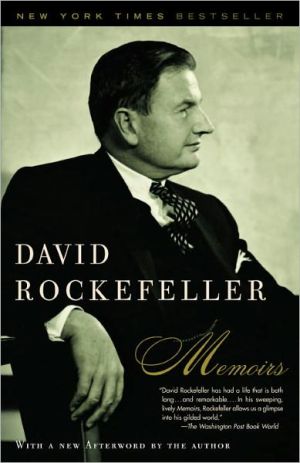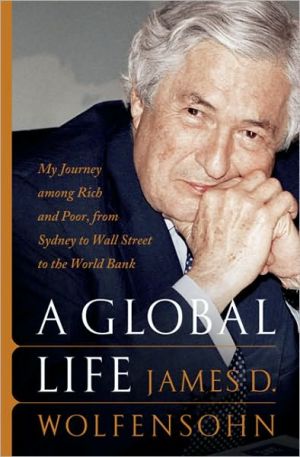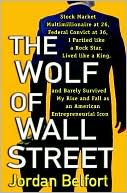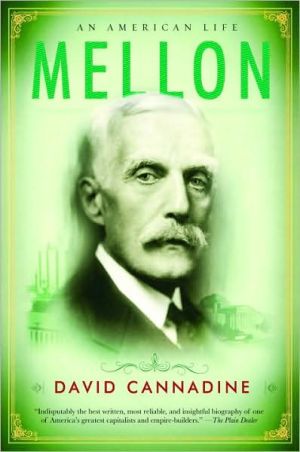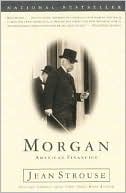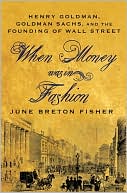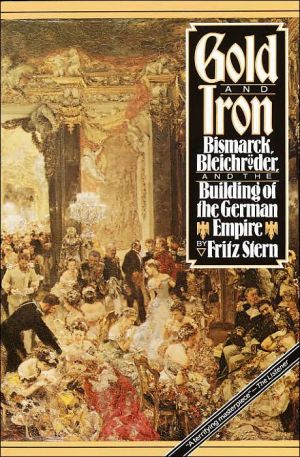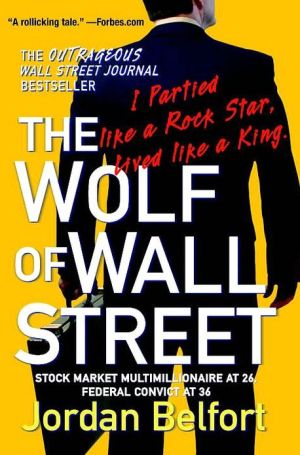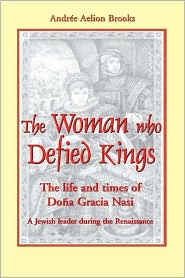Memoirs
Born into one of the wealthiest families in America—he was the youngest son of Standard Oil scion John D. Rockefeller, Jr., and the celebrated patron of modern art Abby Aldrich Rockefeller—David Rockefeller has carried his birthright into a distinguished life of his own. His dealings with world leaders from Zhou Enlai and Mikhail Gorbachev to Anwar Sadat and Ariel Sharon, his service to every American president since Eisenhower, his remarkable world travels and personal dedication to his home...
Search in google:
Born into one of the wealthiest families in America—he was the youngest son of Standard Oil scion John D. Rockefeller, Jr., and the celebrated patron of modern art Abby Aldrich Rockefeller—David Rockefeller has carried his birthright into a distinguished life of his own. His dealings with world leaders from Zhou Enlai and Mikhail Gorbachev to Anwar Sadat and Ariel Sharon, his service to every American president since Eisenhower, his remarkable world travels and personal dedication to his home city of New York—here, the first time a Rockefeller has told his own story, is an account of a truly rich life. The New Yorker As a scion of one of America's most powerful families, a globetrotting business "statesman," a former C.E.O. of Chase Bank, and an important player in the development of downtown Manhattan, David Rockefeller is an emblematic figure of a world that no longer really exists: the world of the Wasp ascendancy. An inveterate networker among policymakers, intellectuals, and corporate leaders, he seems to have been driven by an almost naïve faith in noblesse oblige, and there's something refreshingly nineteenth-century about this entertaining memoir as well. Rockefeller's style is restrained and self-deprecating; the account of his attempts to modernize and globalize Chase makes for excellent business history, and his sketch of his complicated relationship with his brothers is especially convincing. What may be most striking, however, is Rockefeller's resolute internationalism and his commitment to institutions like the U.N. -- a healthy reminder that there was a time when the Republican Party did not see "multilateralism" as a dirty word.
CHAPTER 1\ Grandfather\ \ There is a picture of all the men in the family waiting at the Tarrytown station for the train carrying Grandfather's casket from his winter home in Ormond Beach, Florida. He died quietly in his bed on May 23, 1937, at the age of ninety-seven. While the official cause of death was sclerotic myocarditis, it would be simpler to say he died of old age. I had known him as "Grandfather," not the "robber baron" or great philanthropist of the history books. He had been a constant presence in my childhood: benign, indulgent, revered by my father, John D. Rockefeller, Jr., and by the family as a whole.\ Looking at that picture today, I find it remarkable how well it captured our relationships with one another, where we were in life, and, perhaps, where we would all be going.\ John, characteristically, stands on the periphery. Thirty-one years old, he is the oldest son, inheritor of the dynastic name. After he graduated from Princeton, Father put him on the boards of many family institutions, among them the Rockefeller Foundation, the Rockefeller Institute for Medical Research, and Colonial Williamsburg, grooming him to be the family leader, but he is shy and uncertain of his abilities.\ Nelson, also characteristically, has managed to situate himself at the exact center of the picture and stares authoritatively at the camera. At twenty-nine he will soon become president of Rockefeller Center.\ Laurance, twenty-seven, the philosopher and businessman, gazes into the middle distance. He was emerging as a leading investor in the aviation industry and, with Eddie Rickenbacker, the World War I Flying Ace, would soon buy a large stake in Eastern Airlines.\ Winthrop is the handsomest. Somehow Mother's Aldrich features-which one might describe as having a lot of "character"-combined with the Rockefeller genes to produce almost movie-star good looks. Win is the most troubled of us and never quite fitted in. Now twenty-five, he is working as a "roughneck" in the Texas oil fields.\ I am the youngest, twenty-one years old, and look very wet behind the ears. I have just completed my first year of graduate work in economics at Harvard and will leave that summer to continue my studies at the London School of Economics.\ Father, beginning to show his sixty-three years, presides over us all, completely forthright, a friendly, kind face. Perhaps a little distant.\ We brought Grandfather back to the mansion that he and Father had built twenty-five years earlier on the family estate at Pocantico Hills. Called Kykuit, the Dutch word for "lookout," its hilltop site commands a magnificent view of the Hudson River. The next day, with only immediate family and a few close friends present, we held a service for him. I remember it was a beautiful spring day, the French doors open to the terrace, and the Hudson River a glistening blue below us. His favorite organist, Dr. Archer Gibson, played the large pipe organ in the main hall, on which we used to pretend to perform when we were children. Harry Emerson Fosdick, senior minister of Riverside Church, which was built by Father, gave the eulogy.\ After the service, as everyone milled about, Mr. Yordi, Grandfather's valet, gestured to me. Yordi, a dapper Swiss fellow, had been Grandfather's valet and constant companion for thirty years. I knew him well, but he had always been reserved in my presence. I went over to him, and he pulled me aside, into a deserted hallway. "You know, Mr. David," he began (from as early as I can remember, the staff always addressed us in that way, "Mr. Rockefeller" being too confusing with so many of us with that name, and first names would have been too familiar), "of all you brothers, your grandfather always thought you were the most like him." I must have looked very surprised. It was the last thing I expected him to say. "Yes," he said, "you were very much his favorite." I thanked him somewhat awkwardly, but he just waved his hand and said, "No, no, I just thought you should know." I didn't really know what to make of it. I thought it would have been Nelson, but I couldn't pretend I wasn't pleased.
\ From Barnes & NobleThe Barnes & Noble Review\ The Rockefeller name has carried a special weight for more than a century, borne by one of America's most wealthy and powerful families. In Memoirs, David Rockefeller, grandson of Standard Oil titan John D. Rockefeller, tells of the burdens and privileges of being a Rockefeller, and of his attempt to carve out a distinct life and legacy of his own. \ The book is large in scope, for the canvas of the author's life is huge. Recalling the history of his family wealth and his familial relations, Rockefeller also recounts his career -- starting as an aide to New York City mayor Fiorello LaGuardia, stepping up to the helm of Chase Manhattan Bank, and becoming a philanthropic leader. As a private citizen, Rockefeller considered himself an emissary of American capitalism and democracy. As such, he managed to encounter many of the 20th century's key political figures. He debated economics with Khrushchev, made deals with Egypt's Nasser, and turned down job offers from President Nixon. The book also explores his membership in many international organizations, such as the Council on Foreign Relations and the Trilateral Commission.\ For readers interested in the growth and development of New York City, this is an insider's view -- from Rockefeller Center's rise during the Great Depression to the construction of the World Trade Center in the 1970s. In great detail, Rockefeller recounts the high and low points of his struggle to develop Chase Manhattan into an international banking presence. He also recounts his involvement in cultural and educational institutions, notably, the Museum of Modern Art and Rockefeller University. Memoirs captures the special life of a man who has managed to keep the Rockefeller name alive as a dynamic presence in our nation's economic, cultural, and scientific development. Dana Isaacson\ \ \ \ \ \ The New YorkerAs a scion of one of America's most powerful families, a globetrotting business "statesman," a former C.E.O. of Chase Bank, and an important player in the development of downtown Manhattan, David Rockefeller is an emblematic figure of a world that no longer really exists: the world of the Wasp ascendancy. An inveterate networker among policymakers, intellectuals, and corporate leaders, he seems to have been driven by an almost naïve faith in noblesse oblige, and there's something refreshingly nineteenth-century about this entertaining memoir as well. Rockefeller's style is restrained and self-deprecating; the account of his attempts to modernize and globalize Chase makes for excellent business history, and his sketch of his complicated relationship with his brothers is especially convincing. What may be most striking, however, is Rockefeller's resolute internationalism and his commitment to institutions like the U.N. -- a healthy reminder that there was a time when the Republican Party did not see "multilateralism" as a dirty word.\ \ \ Publishers WeeklyAs a military intelligence officer in World War II, Rockefeller learned his effectiveness depended on his "ability to develop a network of people with reliable information and influence." During his long life-he turned 87 this year-he's amassed a Rolodex of more than 1,000 contacts, and in this satisfying autobiography, he describes firsthand encounters with Pablo Picasso, Sigmund Freud, Fiorello La Guardia, oil sheikhs, Latin American strongmen and others. Critics might say Rockefeller's not too choosy about the company he keeps; they claim he's "never met a dictator he didn't like." Indeed, he has been roundly criticized for the role he and Henry Kissinger played in persuading the Carter administration to allow the exiled shah of Iran into the U.S., an event widely believed to have sparked the hostage crisis. But this memoir is much more than a titillating account of wealth and international intrigue. Rockefeller also meticulously recounts the modernizing of Chase Bank, where he worked for 35 years, rising to become chairman and chief executive, finally giving the company-which merged with JP Morgan in 2001-a written history on a par with Ron Chernow's The House of Morgan. New York City also dominates here; after Robert Moses, the Rockefeller clan has had the strongest hand in shaping the modern urban landscape, from Wall Street to midtown to Morningside Heights. Indispensable for anyone interested in financial and American history, Rockefeller's well-organized remembrances present a deeply fascinating, thorough look into the life of a living legend. Copyright 2002 Cahners Business Information.\ \ \ \ \ Foreign AffairsFour generations of business, politics, and philanthropy have made the Rockefellers, along with the Roosevelts and the Washington-Lee dynasty, one of the most important families in American history. David Rockefeller is now the unquestioned chief of the clan, and the publication of his memoirs will have everyone from conspiracy theorists to urban planners to art aficionados to foreign policy experts scanning the pages. Here they will find a self-portrait that is revealing without being confessional. The book's most delightful passages cover his youthful travels in Europe and his war service; the most moving sketch the conflicts and reconciliations of an often troubled family; and the most interesting describe the various crises that shook Rockefeller's world to its foundations in the 1970s. The nadir came in 1976, amid the economic malaise that threatened the New York City economy, Chase Manhattan Bank, and the family's real estate holdings. As hostile articles appeared in the financial press, the Chase Manhattan board of directors openly questioned Rockefeller's leadership, and close friends warned him he had only a year to turn the bank around. Meanwhile, the painful confrontation that set his generation against the radical politics of the Vietnam era still festered, and his brother Nelson saw his presidential ambitions destroyed when Gerald Ford dumped him from that year's Republican ticket. Understatement, often wry, is one of the author's characteristics, and these memoirs make abundantly clear that if Rockefeller inherited what he calls the distinctive "Aldrich nose" from his mother, his sense of duty and his steely will come straight from the patriarch.\ \ \ \ \ Library JournalThis autobiography by the youngest son of John D. Rockefeller Jr. and Abby Aldrich Rockefeller is also a history of 20th-century America and its influence in the world order. As David Rockefeller traces his own life (he was born in 1915) with references to the personal and business dealings of his father and grandfather, this history unfolds through his eyes. Chapters on his childhood, teenage years, and relationships with his parents provide insight into his character development and lifestyle. But when he discusses his years at Harvard, the London School of Economics, and the University of Chicago, where he earned his Ph.D. in economics, Rockefeller tells of his meetings with top professors and economists such as Keynes and Schumpeter, commenting on their theories. The account of his travel experience in Nazi Germany during the mid-1930s is compelling. His marriage to Peggy, his time as an intelligence officer in World War II, and his relationships with his brothers in family conflicts, as well as his work with Chase Bank, Rockefeller Center, OPEC, and the Middle East, Latin America, and the World Trade Center, are all discussed in detail. Of particular interest is Rockefeller's epilog discussing 9/11. This very readable and thought-provoking account of an influential financier, philanthropist, and art lover will hold readers' interest. Given the broad sweep of Rockefeller's life, it may be quite popular and in demand in both public and academic libraries. Steven J. Mayover, formerly with the Free Lib. of Philadelphia Copyright 2002 Cahners Business Information.\ \ \ \ \ Kirkus ReviewsMild-mannered plutocrat recalls some excellent adventures in a temperate, often candid text. \ Born 87 years ago in the largest private house in New York, Rockefeller evinces much respect for grandfather John D., the muckrakers’ perennial target. ("It was a different world then," he writes of Standard Oil’s monopolistic practices.) Father John Jr., an earnest philanthropist with whom David exchanged letters even while they were in the same house, earned even more respect from his son who, ever mindful of his responsibilities, studied assiduously at Harvard and the London School of Economics. After wartime service as an intelligence officer and a stint as acolyte to Mayor LaGuardia, David became a banker and for a while rode the subway daily to Chase Bank—never owned or controlled by the family, he asserts, though Father was its largest shareholder. Much of this account deals with David’s career at Chase, which he transformed into an international presence. Credit him with reviving downtown Manhattan through the construction of Chase Plaza. From his 17th-floor office there or in Rockefeller Center’s Room 5600, he dealt with the world’s movers and shakers, networking at the highest levels in Russia, China, Latin America, and the Middle East. Though never seeking or accepting public office, Rockefeller founded and served on numerous boards and agencies. He did indeed start the Trilateral Commission, enlisting Zbigniew Brzezinski, Jimmy Carter, and others; conspiracy theorists may make what they will of his admission to being an "internationalist." Also discussed: Rockefeller Center’s short tenure with Japanese owners, the work of the Rockefeller Brothers Fund, diverse siblings (big brotherNelson emerges as a charismatic bully), and the troublesome younger generation. His lengthy text is perhaps self-serving, but such is the nature of autobiography.\ A memoir, rich as a Rockefeller, that should fire up historians, pundits, and commentators: every page raises unanswered questions about a remarkable life.\ \ \
